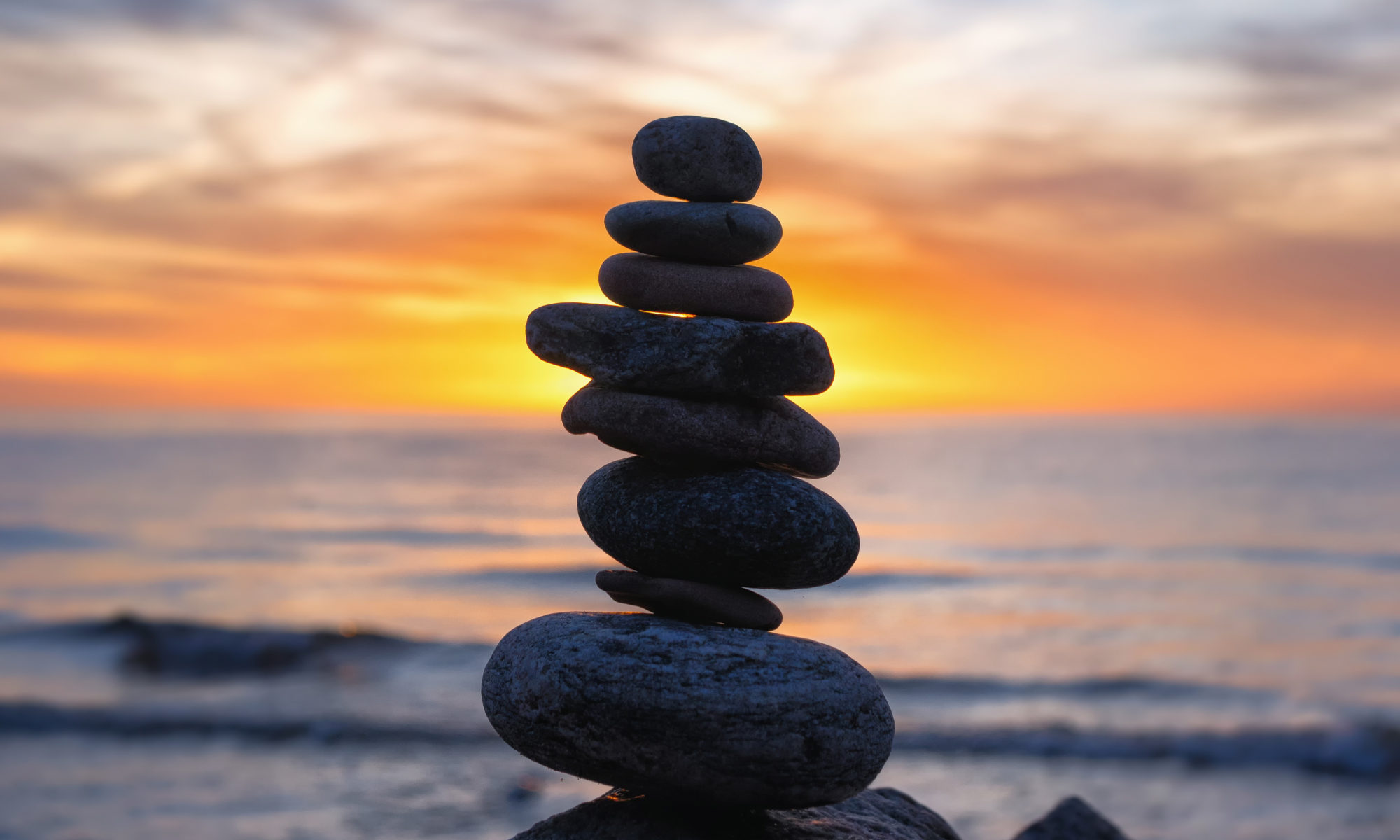Creating Balance in Life is an important part of being healthy and happy.
Overall, a balanced life can mean many things, depending on culture, circumstances, resources, and other factors. Balance means making sure we have time to do the things that make us feel happy and fulfilled. This includes working (paid or unpaid), having fun, spending time with family and friends, participating in the community, being physically active—including sexually— praying, and relaxing and sleeping.

Because we all have individual needs, preferences, and capabilities, what we consider “balance” will also look different. And it’s important for us to re-balance from time to time, to adjust to what is going on in our lives.
When we’re trying to get through a tough time—whether it is stress, an illness, trauma, or an emotional challenge—balance is especially important. In these times, our habits and routines can help us get that feeling of control back. This means focusing on ourselves as well as the roles we play in the lives of others—like being students, friends, parents, spouses, coworkers, congregants, hobbyists, community members, and citizens.
Our roles and relationships help define who we are, what gives us a sense of purpose, and how our lives are interdependent on other people, animals, and the environment. Being engaged in life and relationships provides a measure of balance and overall wellness.
What is Purpose?
Purpose is something that makes us feel involved and good about ourselves, or in balance. It could be as different as taking our dog for a walk, or taking care of ones own family. And any step in that direction, such as finding a new walking partner or plogging, is positive. However, sometimes embracing support from others align our purpose in life.
Embracing Support from Others is important for Creating Balance in Life!
We may want advice from family and friends. That’s OK, too, and is where support from others comes in. Talking with someone who has been through similar things—whether it is a mental health issue, addiction, trauma, pain issues, smoking, diabetes, bullying, or abuse—makes us feel less alone. When we realize others have had similar feelings and experiences and have been able to move forward and grow, it can give us the confidence to move forward, too.
Read: Nourish your Body and Mind with Healing Sunlight
With a support group, we can expect:
- Supportive input from people with a range of backgrounds who have experiences similar to ours;
- A chance to support others by our presence, compassion, our ideas, and empathy; and
- People who can suggest services or resources we might not have considered. We can find supportive people in many places—a community or church/synagogue/ mosque/temple group, at work, or through volunteering efforts, to name a few.
Related Articles
We can also consider:
- Being active in activities that have purpose. If our daily routine lacks meaning, we can feel distressed or powerless.
- Increasing activities that contribute to our wellness. Talking with a friend at the start of the day may help set a good intention or plan for the day.
- Getting a good night’s rest. Insomnia can noticeably impact social relationships, physical and emotional reactions, productivity, and our ability to concentrate and accomplish tasks.
- Being aware of the right amount of social interaction. It’s important to know our limits.
- Remembering that time zone changes or daylight saving time can impact our mood and our routines; readjusting is normal.
- Using a routine that works for us. Calendars help us remember when or how often we want to get things done, such as get an oil change, clean the refrigerator, celebrate an accomplishment, call a friend or family member, check our financial records, and schedule an annual physical.
- Repeating a behavior until it becomes automatic, such as taking medication. Checklists help us make sure that important tasks are not being forgotten.
- Creating a wellness lifestyle can be challenging, but finding the right information, supports, and resources and tracking our progress can help us get there.
Join Wellness Community to Get Daily Tips on Health, Skin and Hair

You must be logged in to post a comment.